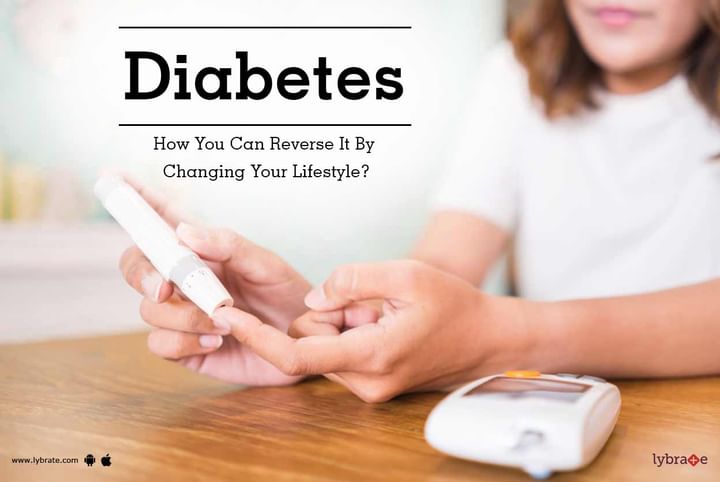Diabetes - How You Can Reverse It By Changing Your Lifestyle?
What happens in diabetes? Your body is unable to breakdown sugar due to either production of less insulin or because of insulin insensitivity. This leads to a surge of sugar in your blood. High sugar damages key organs like kidneys, heart and nerves inside your body. If left untreated, diabetes cuts down on life expectancy and takes life away from the years a diabetic is alive. Its treatment is managing the quantity of blood sugar through diet and lifestyle changes, including exercise.
Diabetes nutrition
Diabetes nutrition requires cutting down on foods that raise blood sugar or glucose. These are called high glycemic index foods. The glycemic index is the ability of food to raise blood sugar in the body. Usually, it is measured as a reference to glucose, as 100.
So, ‘bad’ carbs are the highly processed carbohydrates like polished rice, white flours and semolina or sooji with high glycemic index. And the ‘good or healthy’ carbs are those that contain more nutrients like minerals, vitamins and fibre and low glycemic index and include fruits, whole grains and vegetables.
Fat is also a problem for diabetics. But why?
Remember, traditionally doctors have focused primarily on blood glucose management, but diabetes management today has overshot the goalpost. More people with diabetes will die of heart disease than of diabetes. Hence, diabetes nutrition management today emphasises not just glycemic control, but also the management of blood pressure, lipids, and other risk factors that may jeopardise heart health. Hence, to optimise diabetic nutrition, apart from low carbohydrate, low fat, calorie restricted diets are also crucial. Low fat diet also aids in weight loss which helps people with type 2 or adult- onset diabetes control blood glucose better.
How can you make the best use of diabetic nutrition?
Diabetic diet can be optimised by taking these simple steps
- Eat three meals a day at regular times. This helps your body use insulin better.
- Start your day with a good breakfast.
- Eat exactly the same quantity of food every day. Avoid overindulgence one day and abstinence the next.
- Eat more fibre which means more legumes, lentils and peas as well as fruits like pears.
- Use more monosaturated fats that are present in nuts, olives and walnuts.
- Avoid red meats- they contain saturated fats.
- Stay away from baked foods and processed snacks as they contain trans-fats which are bad for the heart.
- Exercise is key to optimising your diabetes diet. It helps you manage both your weight and insulin sensitivity. Even five percent decrease in body weight helps.
These are just some of the ways diabetic nutrition can be optimised to attain multiple goals of attaining proper blood sugar, blood pressure, and lipid goals plus achieve body weight goals for preventing or delaying diabetes complications.
In case you have a concern or query you can always consult an expert & get answers to your questions!



+1.svg)
